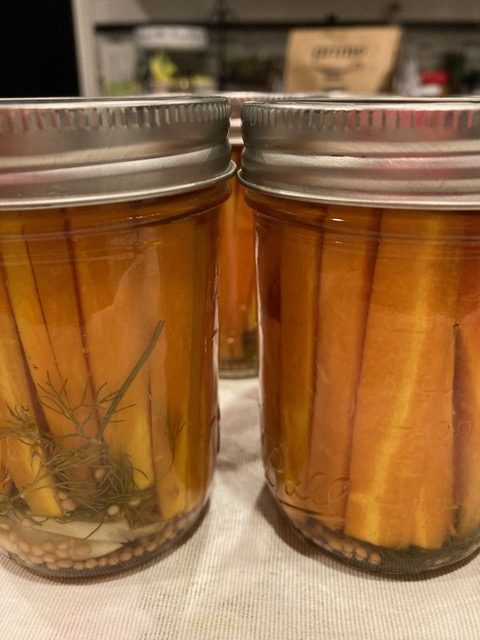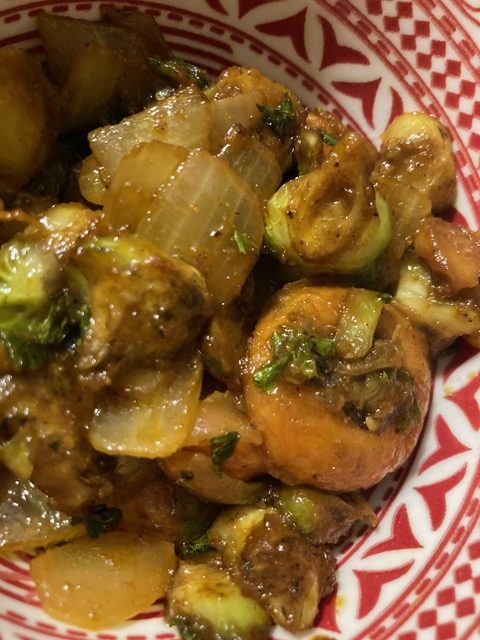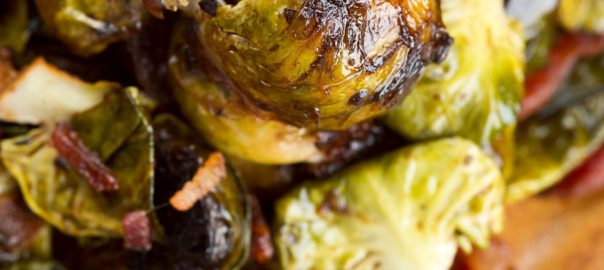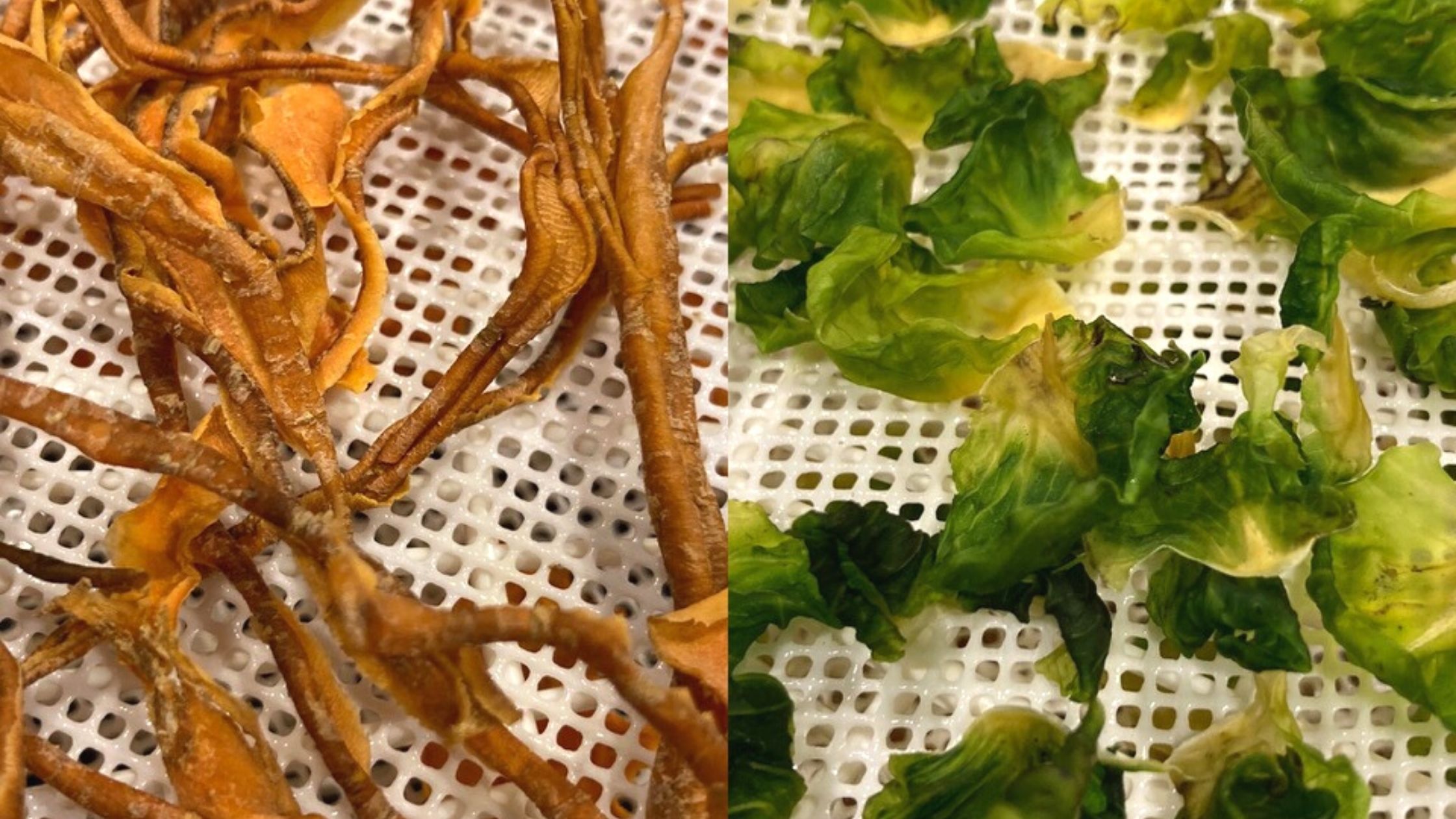As we wind down toward the end of summer the Farmer's Markets are filled with a bounty of produce. All the delicious colors and flavors of the season are on display. Every time I go to the market I seem to come home with an overflowing market basket that is more than the two of us can eat in a reasonable period of time.
This post is my tip-to-tail use-everything-you-can vegetable experiment.
Food Preservation
Having more fresh produce than you can eat is actually a blessing in disguise. This allows you to preserve it for out-of-season enjoyment. You're buying it when it's at peak season and therefore usually fresher and less expensive, but you can enjoy it anytime.
There are a lot of different ways to preserve food:
- Canning – Whether you're doing water bath or pressure canning this does require jars, lids, and a few pieces of equipment plus recipes to make sure your percentages are correct.
- Dehydrating – You can do this in the oven or purchase a dehydrator. You'll need extra water stored in order to rehydrate foods.
- Fermentation – No special equipment is needed but you will need to know what you're doing to make sure things are properly preserved
- Freezing – You'll need freezer safe containers for this method and it can be limited by freezer space
- Freeze Drying – This requires special equipment and creates good long term storage. You'll need to have extra water available to rehydrate items.
- Smoking/Curing/Salting – You'll need a space where foods can sit while you prepare them this way. Again, knowing what you are doing is important.
My two favorite ways to preserve food at the moment are canning and dehydrating. Nothing against any of the other methods, these are simply the two that I am most familiar and comfortable with.
Start With Canning
The vegetables I had on hand that I wanted to use in some way were carrots and Brussels sprouts. Both of which I bought at the farmer's market. I actually purchased more than we needed so I would have some available to preserve for winter.
Lately, however, I've been learning more about food preservation methods and about scrap cooking where you use just about everything. I've been enjoying the book Scrappy Cooking by Joel Gamoran and decided that I was going to use both vegetables to their absolute fullest and see how it worked out.
For the carrots, I went simple and a family favorite.

Dilly Carrots
Ingredients
- Carrots cut into julienne slices for 6 jars (about 5 pounds)
- 3 ½ cups apple cider vinegar
- 3 ½ cups water
- 1/3 cup pickling salt
- 6 cloves of garlic
- 6 sprigs of dill
- 3 teaspoons of mustard seed
Instructions
- Sterilize jars, rings and lids
- Bring vinegar, water and pickling salt to a boil
- In each jar place 1 clove of garlic, 1 sprig of dill, and ½ teaspoon of mustard seed
- Add julienned carrots (really squeeze them in there)
- Ladle brine into the jar leaving 1/4” head room
- Clean top of jar and add lid and ring
- Hot water bath 10 minutes
- Remove from heat and let sit until jars “plink” and lids seal
- Store in a cool, dark place
For the Brussels Sprouts I followed a suggestion from a friend and made something called Frogs Balls. These are simply parboiled Brussels sprouts preserved in a bread-and-butter-pickle type brine. I used this recipe.
Getting Scrappy
Because I needed to wash and peel the vegetables I decided to make use of the trimmings. Normally I put these into a bag in the freezer. Eventually, when I have enough plus a chicken carcass, I use them to make bone broth. This time I decided to branch out and try something else. I set aside the carrot peels and Brussels sprouts leaves in one pile. In the other pile I put the tips and tails of the carrots plus the trimmed ends of the Brussels sprouts.
For the peels and leaves I simply put them into the dehydrator. I currently have a Nesco brand dehydrator which has no timer and no heat setting. I simply let it run overnight. In the morning they were nice and crispy.
At this point they go into a jar where they get conditioned. Conditioning, as I've learned, is where you take dehydrated items, put them into a jar, and shake them well every day for about a week. You do this in case there is any moisture. By shaking the jar you are rotating the contents to try and evenly distribute any residual moisture throughout the jar.
Because I didn't have a particular use for dehydrated carrot peels and Brussels sprouts outer leaves. I decided the best use for them is to make a vegetable powder which can be added to soups, casseroles, and other dishes. A quick buzz in the not-for-coffee-coffee-maker and I had my powders. I set them aside in their jars to condition for another week. Apparently for optimal dehydration procedure you should condition anything you dry for a week and then also condition for another week any powders you've made from it.
Cooking Scrappy
While things were being dehydrated and powdered I still had the tops and tails to contend with. Joel's book assures me that roasted Brussels sprouts ends are fabulous. After reading the recipe I decided I wanted to do something a little different and came up with this dish. This is not a real recipe because I pretty much invented it as I went along. It came out very tasty, however, and is something I plan to make again. Next time I'll keep better track of the ingredients and quantities as I make it.

Scrap Ends and Onion Something
Ingredients
- ½ red onion, about 1 cup, sauteed in olive oil
- 2 cloves garlic, minced and sauteed
- Add ends of carrots and Brussels sprouts (these had been blanched as part of the process before canning/dehydrating)
- Add ½ cup-ish of water
- Add – tomato paste, curry powder, cilantro, salt and pepper
- Add more water to keep it moist but not overly wet
- Cook until everything is thoroughly heated and the carrots and Brussels sprouts ends are soft
Yum!
All in all this experiment was, in my opinion, very successful. I not only had no scraps from the carrots or the Brussels sprouts, I made a new dish that was really tasty. I'm also grateful for the ability to have the powdered vegetables. These are a great addition to any preparedness pantry.




